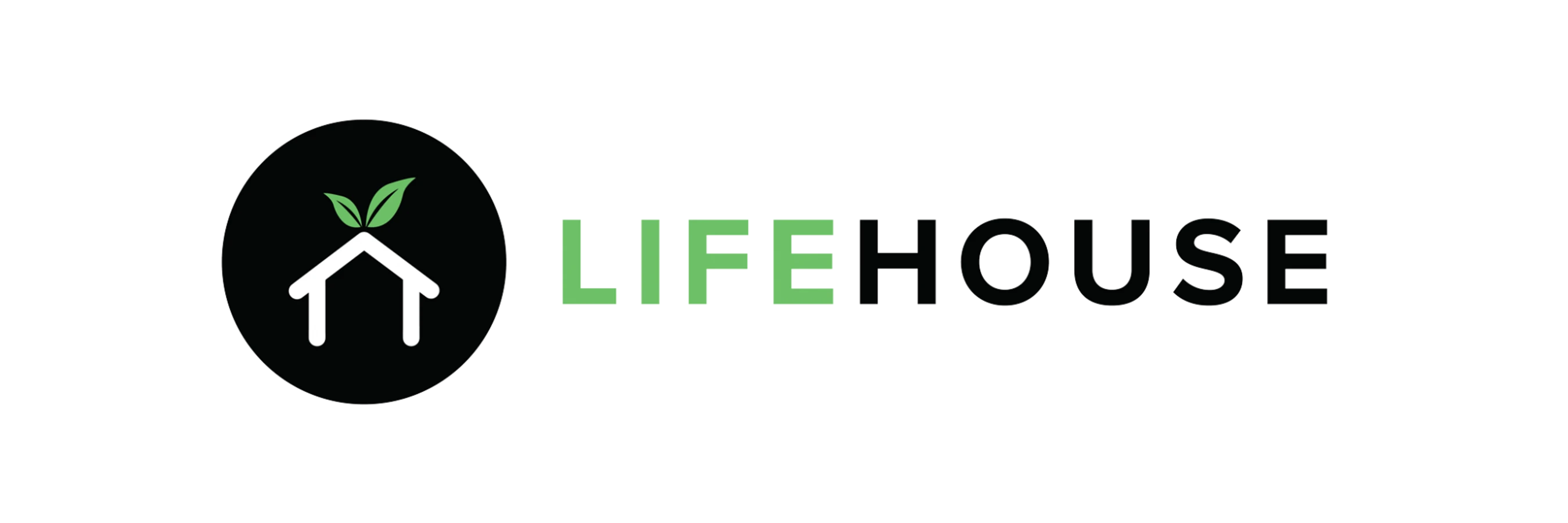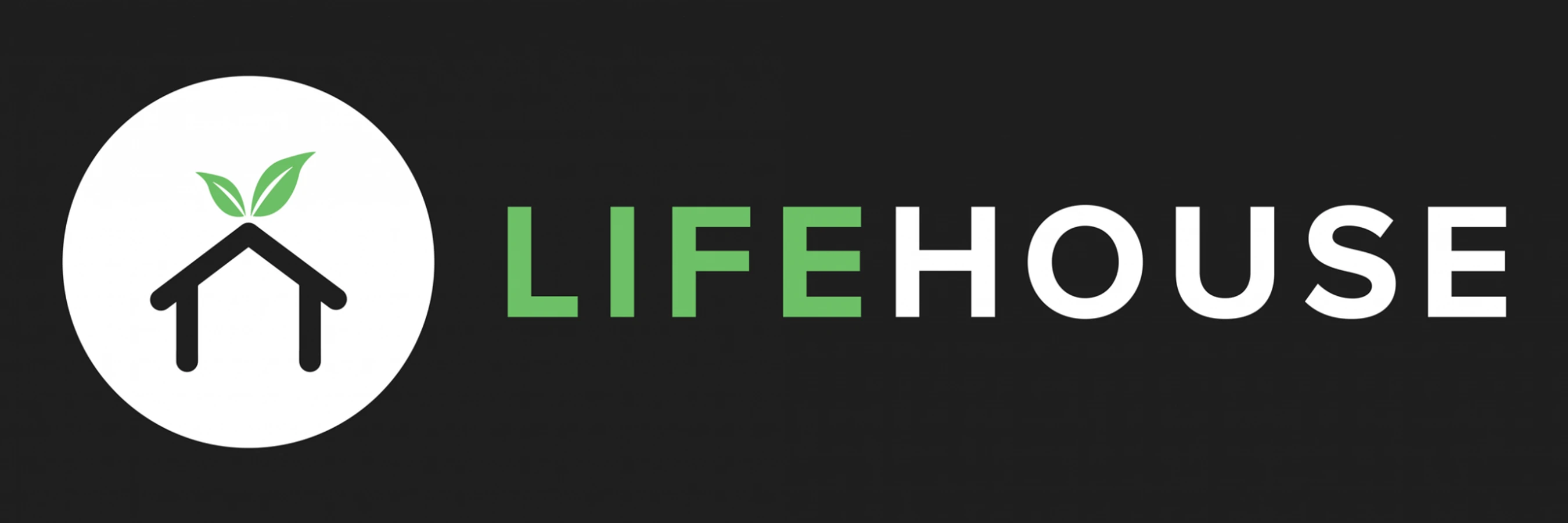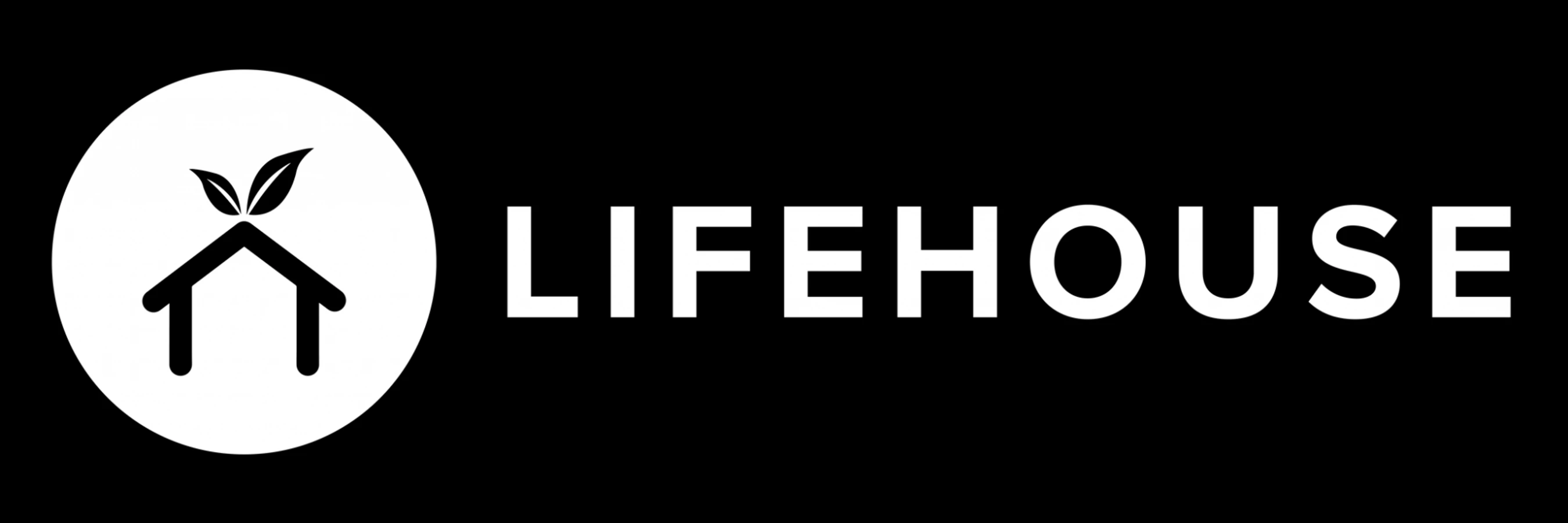Do not change the logotype/font.
LifeHouse Branding
and Style Guide
Logo Set &
Brand Assets
Our logo has a few various adaptations or applications depending on what it is being used for, whether it be printed small on merch, digital watermarks, headers, banners, etc. Use this to help you discern when to use which logo adaptation.
Please note – there are also “full white” and “full black” versions of each of these logos in the logo set, as well as a version with just the green accent color. Please use appropriately when placing on dark or light backgrounds or monochromatic documents.
Primary Logomark
Use as a default when you can properly (with adequate and equal space on every side) display the entirety of this logo. Please note it is best used on something that is “widescreen” or 16:9 resolution (like a TV screen).
Icon
Best used on a square format (like a social media profile picture, or merch with a square printing area – like a coffee mug). Great for watermarking posts on social media or other platforms. Best used when the church name is used elsewhere on the document or platform (like social media). Also used as a favicon on websites.
Avoid these incorrect uses of the LifeHouse logo
Primary Brand Fonts
For branded content like websites, special announcements, videos, internal documents, etc. it’s important to use approved fonts. This list isn’t exhaustive, but when using title, headers, or creative fonts, try to stay within these boundaries. You can use any of these fonts in combination with each other but a good rule of thumb to follow is to use no more than 2 fonts. This is to ensure the design is simple but has enough contrast.
What about additional Creative fonts?
There are some notable exceptions. For example, you might be designing something that needs a nice hand written or script font. In this instance, use of such a font would be appropriate, but try and match the overall feel of the fonts listed. Specifically our branding has clean lines and has a simple, yet professional, feel to it. Try to avoid creative fonts that look distressed or have a “grunge” feel to them.
If "Neue Haas" is not available, please use "Helvetica Neue," "Helvetica," or "Arial"
Primary Brand Colors
When creating documents/graphics for LifeHouse, think along these lines when it comes to your primary color palette. This doesn’t mean that every graphic and post has to include these colors, but for most branded announcements, official logos and releases, etc. should follow this palette.
Notable exceptions would be if there was a conference for women and you wanted to use a lot of pink, or the use of pastels during Springtime, red and green during Christmas, etc.
















